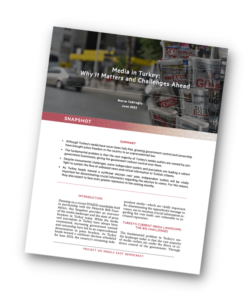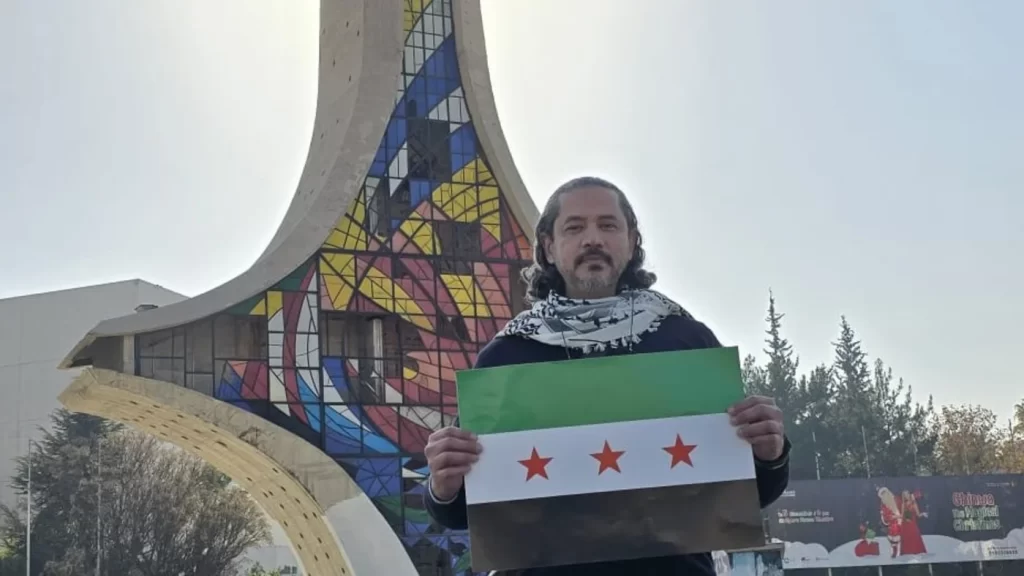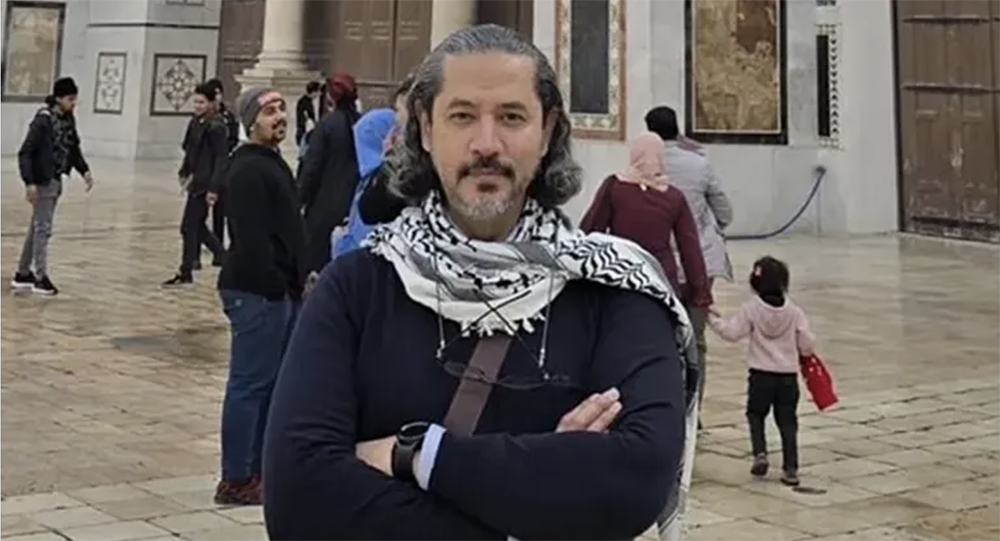Read this Snapshot as a PDF here.
SUMMARY
- Although Turkey’s media have never been fully free, growing government control and censorship have brought press freedom in the country to an unprecedented low.
- The fundamental problem is that the vast majority of Turkey’s media outlets are owned by pro-government businesses, giving the government indirect control over them.
- Despite monumental challenges, some independent outlets and journalists are leading a valiant fight to sustain the flow of unbiased news and critical information to Turkish citizens.
- As Turkey heads toward a cutthroat election next year, independent outlets will be vitally important for disseminating crucial information regarding the election to voters. For this reason, they also expect to face even greater repression in the coming months.
INTRODUCTION
Drawing on a recent POMED roundtable held in partnership with the Heinrich Böll Foundation, this Snapshot provides an overview of the media landscape and the state of press freedom in Turkey today. While the media and journalists in Turkey have always been constrained, increasing government control and censorship have led to an unprecedented deterioration in press freedom. As Turkey heads toward a cutthroat election scheduled for June 2023, the country’s remaining independent media—which are vitally important for disseminating the opposition’s message to voters, not to mention crucial information regarding the vote itself—are vulnerable to increased repression.
TURKEY’S CURRENT MEDIA LANDSCAPE: THE BIG CHALLENGES
The fundamental problem in Turkey’s media landscape today is that the vast majority of media outlets are under the direct or indirect control of the government. Through his family and friends in the private sector, President Recep Tayyip Erdoğan is able to exert significant influence over and even control more than 90 percent of the country’s print, broadcast, and online media outlets. In television news, for example, the eight most popular networks besides the state-controlled TRT and the independent Fox TV and Halk TV are owned by just five holding companies: Ciner, Doğuş, Demirören, Kalyon, and Hayat Görsel. All of these companies’ owners enjoy strong personal ties with Erdoğan or with the family of his son-in-law, Berat Albayrak. They all also depend on government contracts to sustain their businesses in other sectors and therefore have a tremendous interest in keeping close ties with the Erdoğan family. This dependence undermines the journalistic integrity of their media networks and the ability of their affiliated journalists to criticize government policies, host opposition figures, or interview anyone, including independent experts, who criticizes the government.
The case of CNN Türk, Turkey’s second-largest private television news network, is particularly illustrative of the trajectory of privately owned media under Erdoğan’s rule. The channel’s establishment in 1999 was in many ways revolutionary for press freedom. The proliferation of private media networks in the 1990s had ushered in an era of unprecedented political openness, but CNN Türk was Turkey’s first television network to broadcast 24 hours of news with global coverage. The channel’s first years also coincided with a period of democratization under Erdoğan’s Justice and Development Party (AKP), which came to power in 2002 promising to expand religious and political freedoms and to reform the country’s democratic institutions with an eye toward full membership in the European Union (EU). Like many news channels during these early years of AKP rule, CNN Türk hosted fierce debates about the party’s policies and covered subjects that were previously considered taboo, such as the military’s role in civilian politics. In addition, Turkey’s decades-old war with the outlawed Kurdistan Workers’ Party (PKK) began to receive more nuanced news coverage than ever before, particularly during the AKP’s so-called Kurdish opening in 2009. Journalists were able, for the first time, to publish and air interviews with PKK leaders and previously criminalized Kurdish political actors.
This brief era of media freedom screeched to a halt in 2013. After ruling the country for a decade, the AKP won the 2011 general elections with 49 percent of the vote, affording it a level of self-confidence that turned it into an increasingly authoritarian actor. Reacting to then-Prime Minister Erdoğan’s anti-democratic rhetoric and policies, demonstrators across the country took to the streets in the summer of 2013. What became known as the “Gezi protests,” named after the Istanbul park where the protests began that May, marked an end to Turkey’s short-lived experiment with democracy and press freedom—with CNN Türk becoming the poster child for the kind of self-censorship that has defined Turkish media since.
On the night of May 31, 2013, Turkish police decided to attack peaceful protesters in Istanbul with rubber bullets, water cannons, and tear gas, prompting millions more demonstrators to take to the streets over the course of the night. Instead of covering the brutal intervention and mass public outrage against it, however, CNN Türk, which was one of Turkey’s top two TV news networks at the time, decided to air a three-hour documentary about penguins in Antarctica. Outrage over the channel’s decision, which went viral on social media, played as significant a role as the police violence itself in drawing millions of people to Istanbul’s Taksim Square and to parks around the country in subsequent days. The protesters even adopted the penguin image as their symbol. When Erdoğan returned to Ankara from an overseas trip shortly after, as many TV networks were broadcasting his arrival, several others defiantly aired penguin documentaries instead.
CNN Türk, for its part, ceased its already reticent coverage of the mass demonstrations entirely within a few days. According to one journalist who spoke to POMED about the channel’s Gezi coverage, the decision to ignore the protests was the result of the forceful intervention of the channel’s Ankara bureau chief, who worried about upsetting Erdoğan. The bureau chief ultimately convinced the channel’s owner to direct its reporters to stop tweeting and, eventually, to stop reporting on the Gezi events in any way. Inside CNN Türk, many journalists were appalled at the executives’ decision to impose self-censorship around coverage of the protests, and many of them were reprimanded for their tweets about the demonstrations.
The story of CNN Türk is emblematic of the self-censorship pervasive across most media outlets in Turkey today as they contend with increasing judicial harassment and pressure from the government. Meanwhile, yet more television networks and newspapers have come under the ownership of government-friendly conglomerates—including CNN Türk, whose sale to the pro-government Demirören Group in 2018 marked a definitive end to the channel’s unbiased or critical coverage of news. Today, CNN Türk, like most of the channels and newspapers owned by the five media conglomerates, operates as nothing but a government propaganda outlet.
TURKEY’S INDEPENDENT MEDIA
Despite many challenges, some independent outlets still strive to offer reliable, balanced news and analysis to Turkey’s citizens. Although few in number, these outlets have a strong following and offer a lifeline to independent journalists in Turkey.
Television remains the top source of news and political information in the country. And although most TV news networks have come under pro-government leadership, Turkey’s second most popular news channel, the Walt Disney Company-owned Fox TV, provides exceptionally unbiased news and political commentary. Fox TV’s prime-time news often features interviews with opposition politicians and civil society leaders and offers critical coverage of controversial government policies. Even after prominent longtime news anchor Fatih Portakal left the channel in 2020 in the face of growing government pressure, including a three-year prison sentence for insulting Erdoğan, his replacement Selçuk Tepeli has continued Portakal’s tradition of providing insightful news coverage to his audience.
Another important example of independent TV news is Halk TV. Established by Turkey’s main opposition Republican People’s Party (CHP) in 2005, the channel operated under the party’s aegis until 2011, when the CHP’s new chairman, Kemal Kılıçdaroğlu, formally cut the party’s ties to the channel. Dismissed as a partisan media network for many years, Halk TV rose to prominence during the Gezi protests of 2013, when it was one of the only news channels to defy government pressure and provide continuous, uncensored coverage of the historic demonstrations. In 2020, Turkish businessperson Cafer Mahiroğlu, a citizen and resident of the United Kingdom and therefore less vulnerable to government pressure, acquired the channel, bolstering its legitimacy as an independent network. The channel’s hiring of prominent journalists such as Şirin Payzın, the longtime news anchor of CNN Türk, further expanded its popularity.
In addition to television, online news outlets are becoming increasingly popular, especially among younger generations. The digital revolution, arriving in Turkey amid the AKP’s rise to power in 2002, has in many ways transformed the country’s information space. The establishment of T24, Turkey’s first independent online newspaper (or “e-newspaper”), in 2009 was as important a precedent for press freedom in Turkey as the establishment of CNN Türk a decade earlier. The site quickly drew many prominent journalists, including Hasan Cemal of the popular Turkish newspaper Milliyet, who were seeking to escape mounting editorial pressure and censorship imposed by their bosses. Less than a year after its founding, T24 received multiple awards from the Turkish Journalists’ Association, and it remains one of the country’s most highly regarded news outlets. Meanwhile, Medyascope, established in 2015 by prominent journalist Ruşen Çakır, represents another model of digital journalism as Turkey’s first and most popular online broadcasting platform for news and political commentary.
Besides such digital outlets, YouTube has become a key platform for independent journalists in Turkey to reach a growing audience. In recent years, many journalists, such as prominent former CNN Türk anchor Nevşin Mengü and former Hürriyet Daily News Managing Editor Murat Yetkin, have established their own YouTube channels from which they broadcast their reporting and commentary on crucial issues that receive little or highly biased coverage in traditional media, such as the government’s role in Turkey’s devastating economic crisis. YouTube’s “channels” feature provides an easy and convenient outlet for these journalists, while the site, as one prominent YouTuber recently explained during a Medyascope interview, has become the top (and often only) source of information for Turkey’s Gen Z citizens.
INDEPENDENT MEDIA IMPERILED
Independent platforms and journalists in Turkey are essential to maintaining a measure of press freedom and to delivering a flow of uncensored information to Turkish citizens. Yet these outlets and journalists face serious challenges. Turkey’s growing authoritarianism, marked by the presidency’s heavy politicization of the judiciary and monopolization of the media space, has made the country into a very risky environment for independent journalism. Independent networks constantly face fines and advertisement bans from Turkey’s state-controlled broadcast regulator RTÜK (Radio and Television Supreme Council) for offenses such as “insulting” the Turkish government or “stoking hatred and enmity” within Turkish society, while pro-government channels almost never face such punitive measures. In 2021, RTÜK handed down 71 such fines, all against four independent channels, amounting to a total of 21.5 million Turkish lira (roughly $2.5 million at the time). Halk TV received 23 of those, making it the most targeted TV channel, while Fox received 15. One RTÜK official complained that despite receiving some one hundred thousand complaints against pro-government channels, the agency did not levy a single fine against any of them. In a telling recent example, RTÜK fined four independent channels, including Halk TV, for broadcasting the speeches of two prominent opposition politicians denouncing the scandalous convictions of eight human rights defenders in Turkey’s so-called Gezi trial.
For individual journalists working for these outlets, lawsuits and criminal investigations have become a constant problem. Turkey was the world’s sixth-biggest jailer of journalists in 2021, according to the Committee to Protect Journalists, with the Journalists Union of Turkey recording 23 journalists in prison as of May 2022. For those journalists who remain outside of prison, criminal complaints and absurd prosecutions under all sorts of pretexts are commonplace, including for basic journalistic activities. Halk TV presenter Şirin Payzın, for instance, is currently facing a lawsuit from Selçuk Bayraktar, Erdoğan’s son-in-law and the inventor of Turkey’s famous Bayraktar drone, simply for questioning on air whether he had signed any undisclosed military agreements during a recent foreign trip with the president. Besides lawsuits, independent journalists face constant harassment and serious threats on social media from government-aligned troll accounts.
In addition to regular financial and personal threats, a lack of access to newsworthy geographic areas and public figures makes it difficult for independent journalists to do their jobs. Unable to travel to war zones without the necessary permits to embed with the Turkish military, they cannot produce investigative, on-the-ground reporting on Turkey’s active military involvement in Iraq, Libya, and Syria. Accordingly, the main narrative Turkish citizens receive about these wars comes from state news agencies or journalists with close ties to the government who simply parrot the government narrative. Moreover, independent journalists have fewer critical voices to cover as more and more politicians and civil society figures find themselves behind bars. To use such figures—such as the jailed former co-chair of the pro-Kurdish Peoples’ Democratic Party (HDP) Selahattin Demirtaş or prominent civil society leader Osman Kavala—as sources, many independent journalists are forced to conduct written interviews through the help of lawyers who carry the questions and answers back and forth from the prisons where they are held.
Meanwhile, amidst Turkey’s devastating economic crisis, these independent outlets face the pressing challenge of how to finance their work. Although some outlets, such as Fox and Halk TV, are owned by businesses, most web-based independent outlets raise money through donations from individual viewers or from governmental donors. The most important of such funds come from the EU and from member states such as Sweden, Norway, and Germany; there is some U.S. funding as well. But such support can create a new set of problems for their beneficiaries: accusations of serving and promoting foreign interests and criminal investigations by the highly politicized judiciary.
CONCLUSION
Turkish media are in dire straits. With all but a handful of media outlets under the control of business leaders with close ties to Erdoğan, government control, partisanship, censorship, and self-censorship have come to define the country’s media culture. Against this backdrop, a small number of independent media outlets and journalists are leading a valiant fight to sustain the flow of unbiased news and critical information to Turkish citizens. But as described in this Snapshot, they face significant hurdles.
The importance of these independent media outlets, as well as the pressure they face from the government, will only become more pronounced over the next year. As Turkey plunges into a fraught campaign period ahead of critical elections set for next June, Erdoğan and his government face growing public discontent and increasing awareness among the electorate that the country’s economic and political crises are largely of Erdoğan’s own making. As this pressure on the president grows, so will the government’s desire to tame or silence Turkey’s independent journalists. “These are our good days,” one journalist recently told POMED, adding that she only expects the fines, lawsuits, harassment, and threats to get worse as the vote approaches. At the same time, the shifting political tide against Erdoğan—and the prospect of a freer press should he be defeated at the polls—is also emboldening independent journalists to keep fighting against all odds. “For us, what we do isn’t mere journalism anymore,” the journalist told POMED. “It’s a mission. We have to fight for freedom of expression, for politicians and fellow journalists who are in jail. [This is] our mission until the elections.”
Merve Tahiroğlu is the Turkey Program Coordinator at POMED, where she conducts research on and advocates for democracy and human rights in Turkey. Merve is also an advisory board member at the Washington-based think tank Kurdish Peace Institute (KPI) and was a fellow with the National Endowment for Democracy (NED)’s Penn Kemble Forum on Democracy in 2020-21. Prior to joining POMED in 2019, Merve was a research analyst at the Foundation for Defense of Democracies, where she focused on Turkey’s foreign policy, domestic politics, and relationship with Washington. Merve has authored several monographs on Turkey and published articles in outlets such as the Washington Post, Wall Street Journal, NBC, Foreign Affairs, Foreign Policy, and Politico. Born and raised in Istanbul, Merve holds an MA in History from Georgetown University and a BA in Political Science from Duke University.





